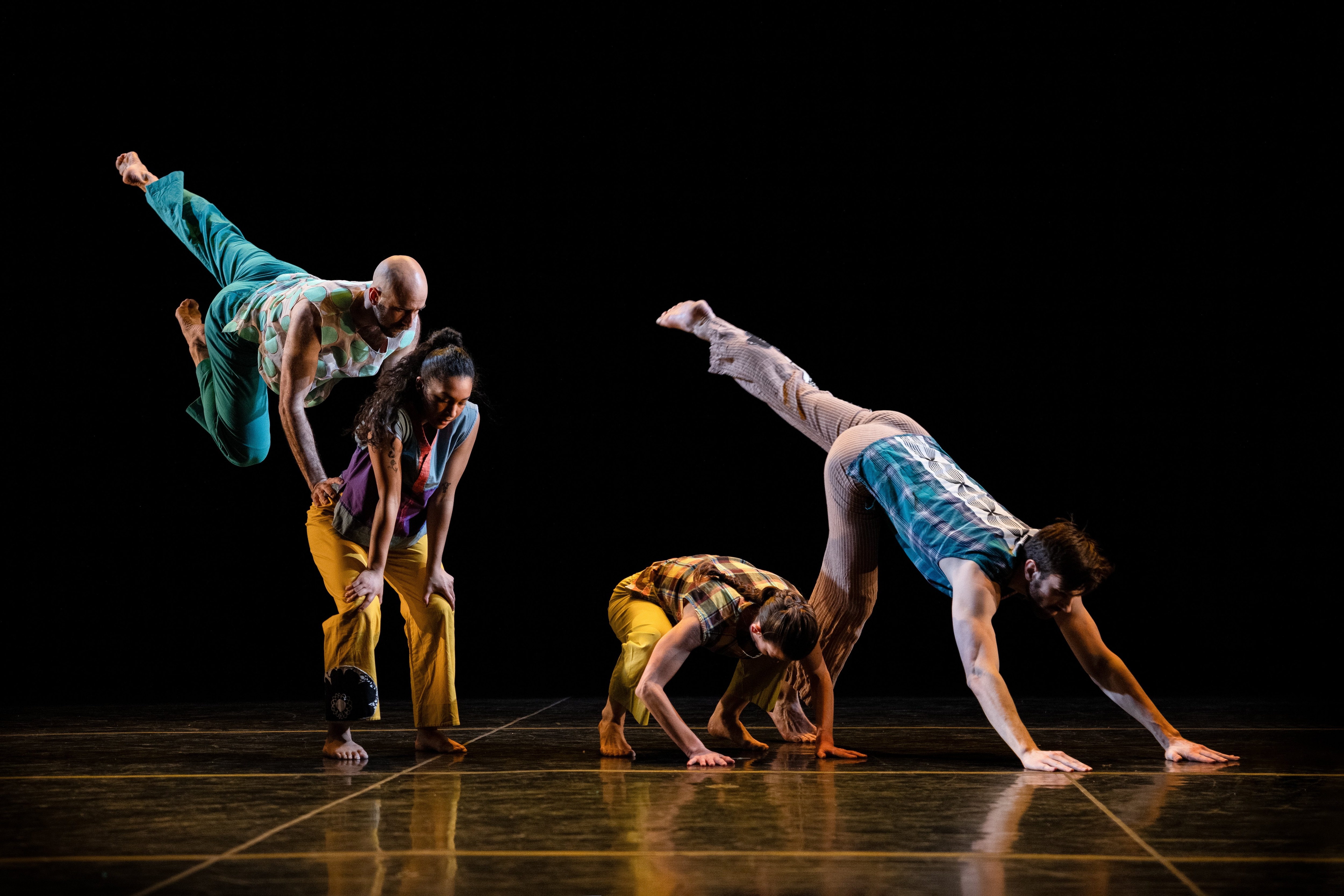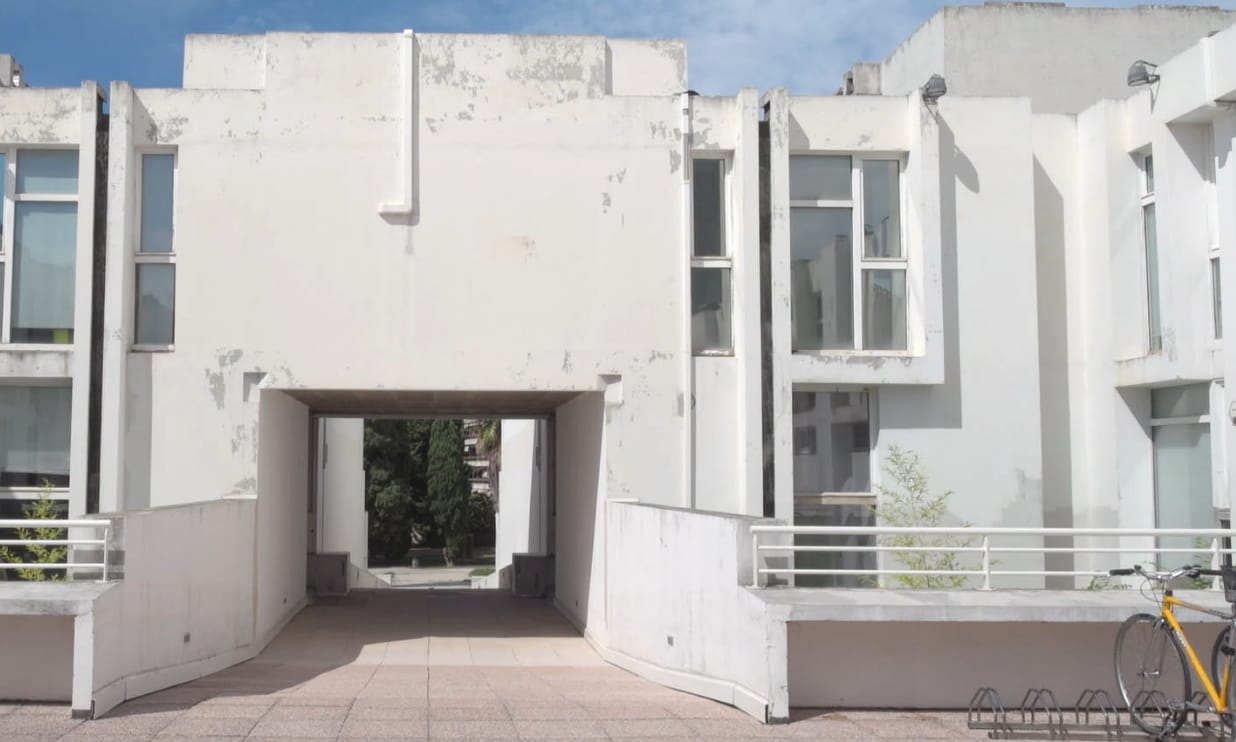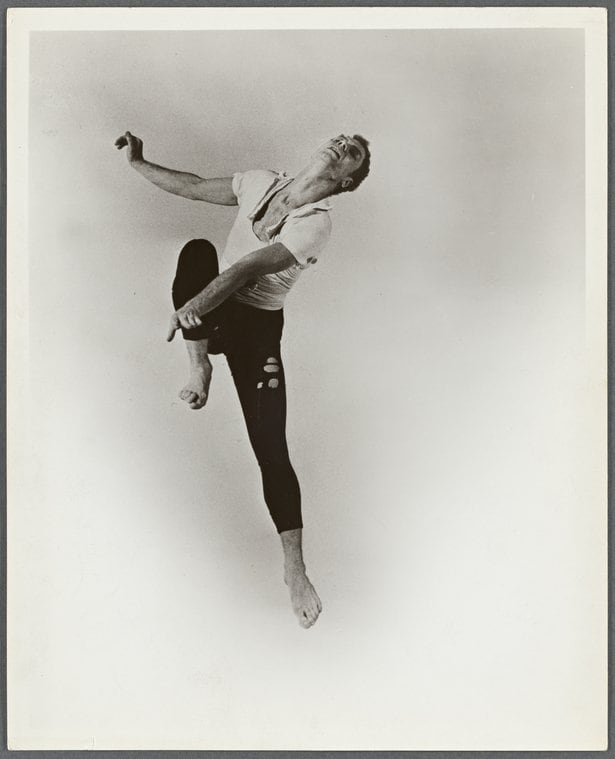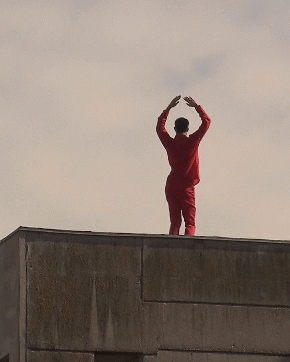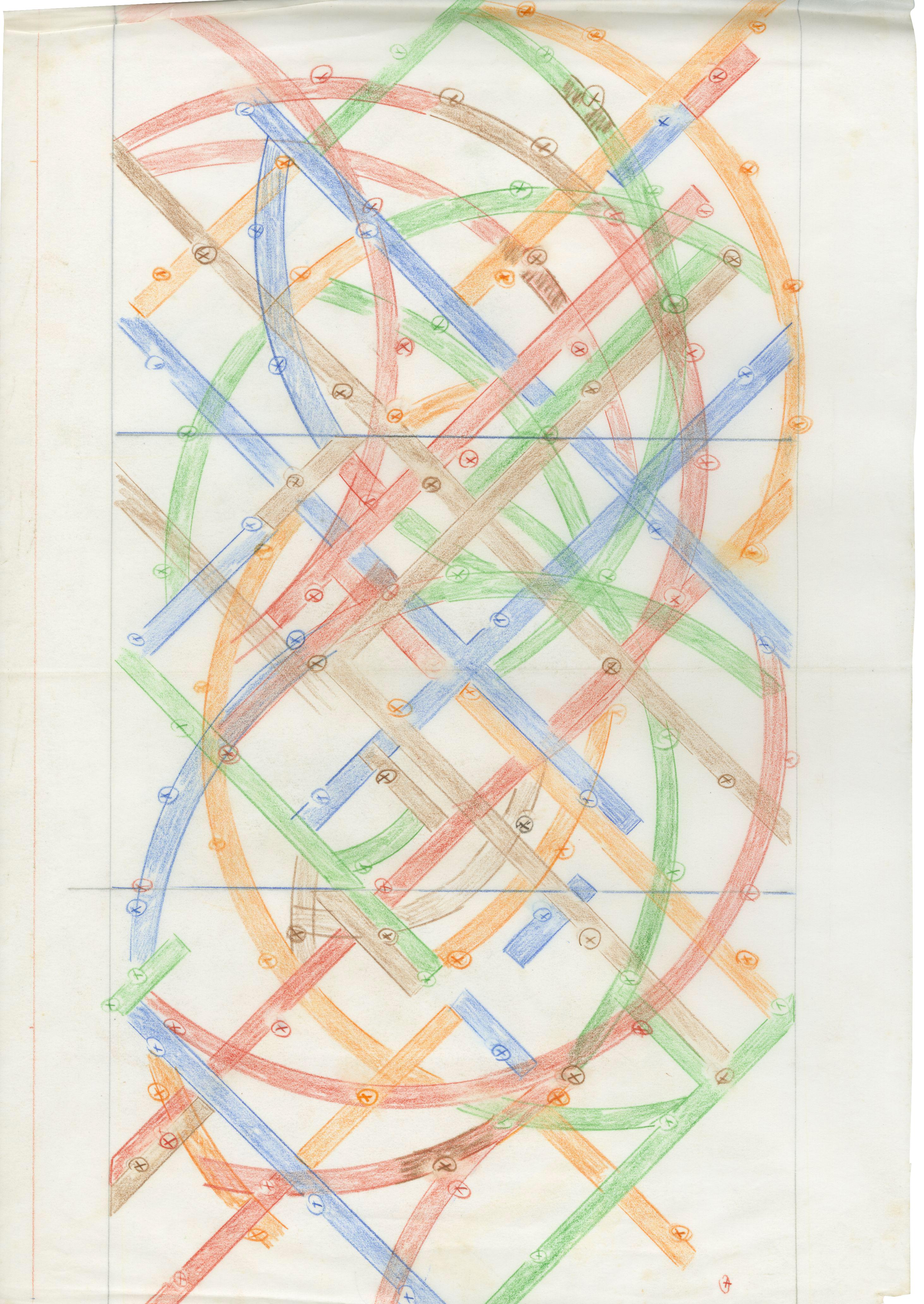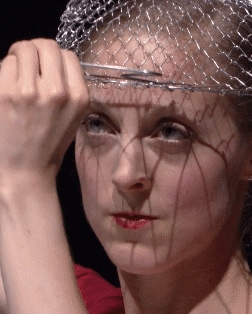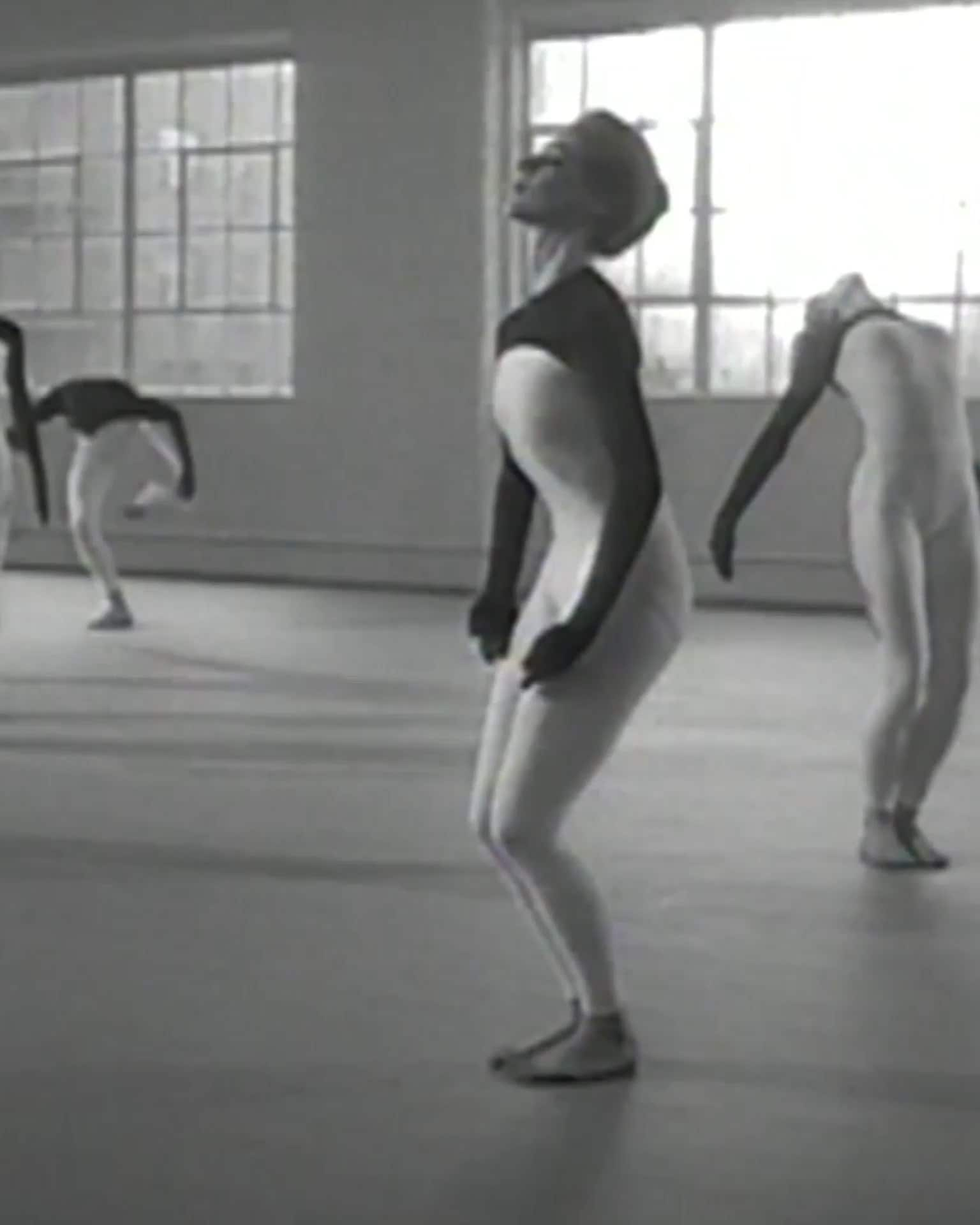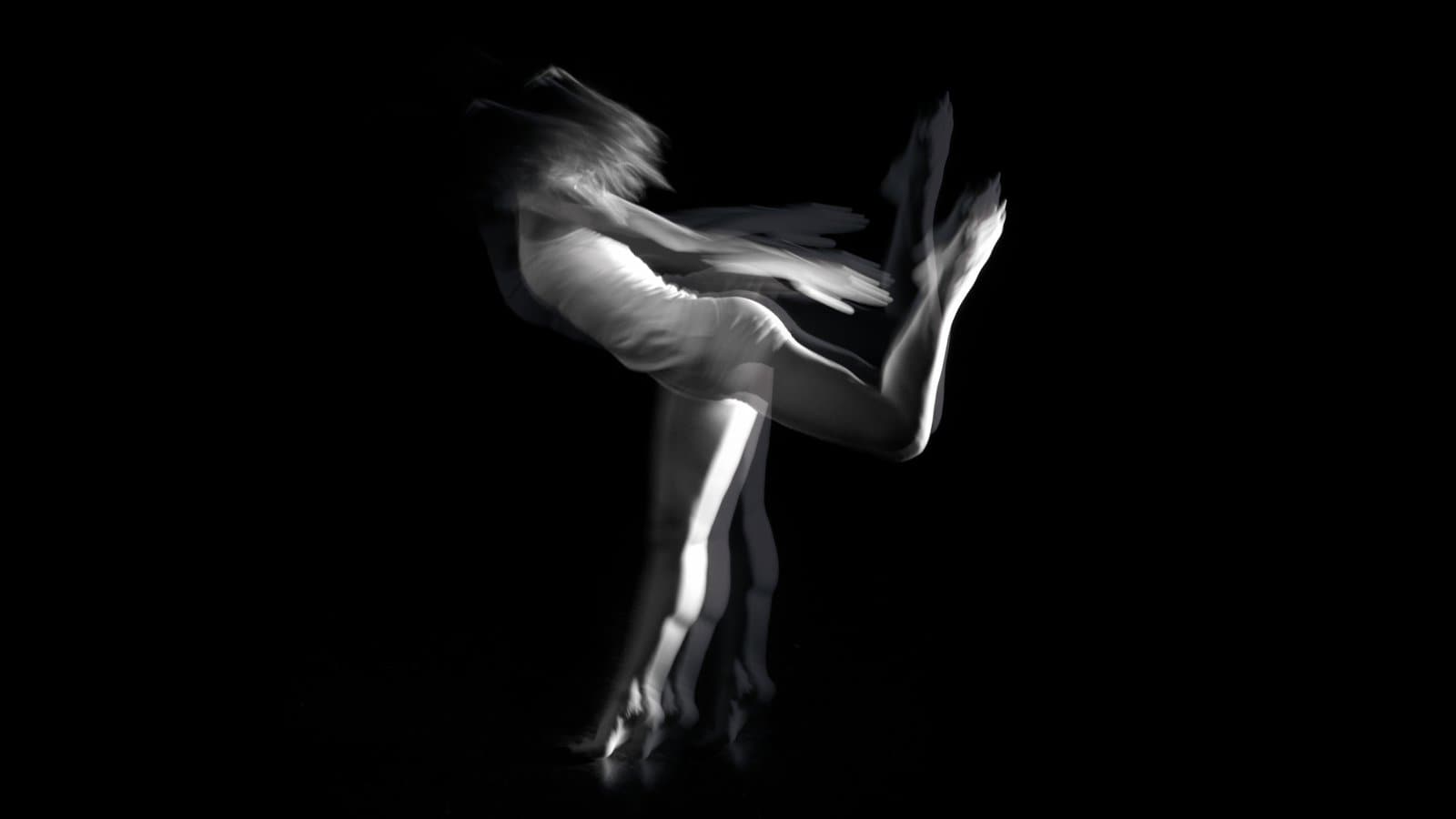The archives of dancer and choreographer Andrée Pragane (1910-1978) – who started her career as a journalist and writer – feature, among other important documents, two albums dedicated to her choreographic work and that of her friend and mentor, the German Jewish choreographer Heinz Finkel.
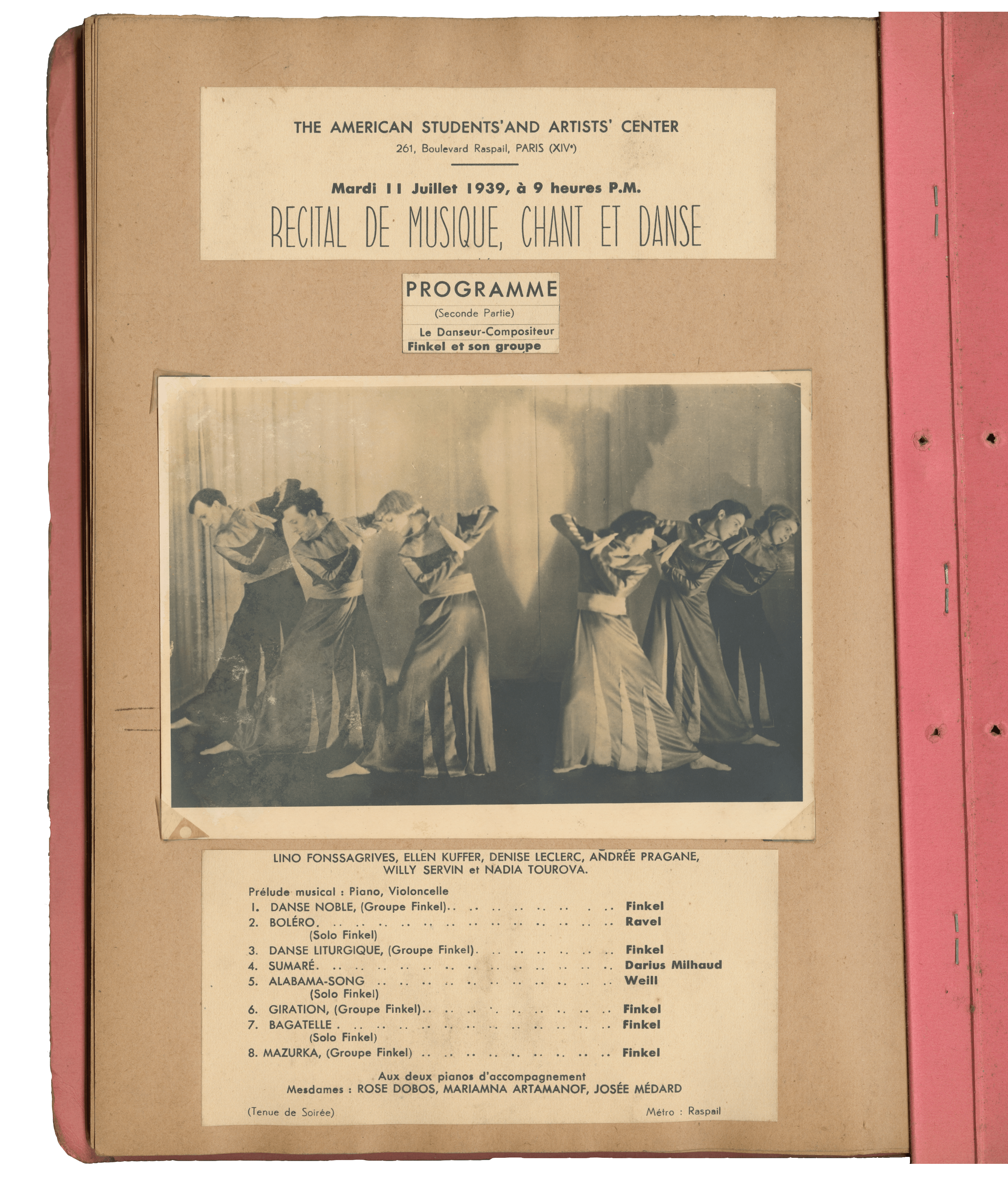
Born in 1908, Finkel fled Germany and the rise of Nazism and arrived in France in 1933 (like Jean Weidt), where he was first hosted by Doussia Bereska – the director of the Paris Laban School at the time. In 1935, he organized a series of performance-lectures on dance techniques for the Archives Internationales de la Danse, where he presented an abstract piece titled Construction. In it, dancers wore futuristic costumes likened by Pragane to “stove pipes.” The two artists met around that time, became friends (as shown by the significant amount of letters Finkel wrote to Pragane during the Second World War) and also performed together several times.
These two albums are precious mementos condensing their respective careers through photos, programs or press articles, such as this page dedicated to Liturgical Dance, a piece choreographed by Finkel and set to a score he composed himself.
In the center, Pragane (the young blonde) and Heinz Finkel (on her left), can be seen bending in the same direction. They are surrounded by other members of the group: Willy Servin, Ellen Kuffer, and probably Yarmila Mentzlova. The cast listed on the program clipping pasted on the photo mentions other artists, and it is very likely that the composition of the group was quite protean. That evening, July 11, 1939, marked one of its last performances: a few days later, Finkel had to go into hiding for several years because of the war. He died in an accident on June 24, 1945, a few weeks after the end of the war.
Through her archives, held at the CN D, Pragane left behind a precious testimony of the daily life of many lesser-known artists, who were forced to diversify their activities to survive during the dark days of the war and the German occupation of France. Pragane gave tap classes and character dance classes, performed solo or with her students, took part in benefits for war prisoners, and toured sanatoriums in the greater Paris region to bring comfort to sick and injured spectators with her performance-concerts.
© CN D – Heritage, Audiovisual and Publishing Department.
Archive document
Andrée Pragane fonds
1890-1972
Centre national de la danse - Heritage, Audiovisual and Publishing Department
cnd.fr

